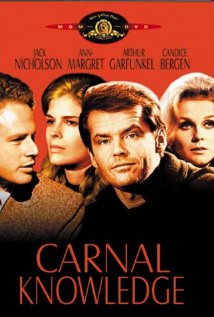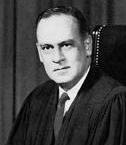|
One of
the most perplexing of all speech-related problems
has been the issue of obscenity and what to do
about it. A wide variety of tests have been
employed by individual justices to determine what
is constitutionally proscribable obscenity, and
for long periods of time, no single approach
commanded the support of a majority of the
Court. The difficulty of defining obscenity
was memorably summarized by Justice Stewart in a
concurring opinion when he said: "I know it when I
see it." Two presidential commissions have
been formed to make recommendations on a national
response to pornography. The first
commission, The 1970 Lockhart Commission,
recommended eliminating all criminal penalities
for pornography except for pornographic depictions
of minors, or sale of pornography to minors.
Another commission appointed under President
Reagan, the Meese Commission, came to a different
conclusion, recommending continued enforcement of
laws regulating hard-core pornography, even when
only adults were involved.
For the past three decades, the courts have been concerned almost exclusively with obscene visual images, not graphic verbal descriptions of sexual activity, but such was not always the case. The early and celebrated legal battles in this country sometimes involved what are now recognized as great works of fiction that included sexual themes: books such as James Joyce's Ulysses or D. H. Lawrence's Lady Chatterly's Lover. But it is important to remember that obscenity issues can still involve non-visual material, as demonstrated by a Florida prosecutor's decision to (unsuccessfully) try the rap group Two Live Crew for violating Florida's obscenity statute by singing rap songs with graphic sexual lyrics. The first of our cases, Stanley v Georgia (1969), is remarkable for its unanimity. In Stanley, the Court concludes that Georgia cannot, consistent with the First Amendment, criminalize the private possession of pornography--even if the sale and distribution of that same material would not be constitutionally protected. The Court found that an individual has "a right to satisfy emotional needs in the privacy of his own house." (In 1990, however, the Court--in a 6 to 3 decision--found that constitutional protection for private possession of pornography does not extend to pornography involving children.) Smith v California concerns what must be shown to convict a bookseller in an obscenity case. The Court concludes that the First Amendment requires the government to prove more than that the bookstore contains constitutionally proscribable obscenity. The government must also prove that the bookseller knew that he was selling obscene materials so as not to have a chilling effect on speech that might be protected. Miller
v California sets out the "modern" test for
obscenity. After years in which no Supreme
Court opinion could command majority support, five
members of the Court in Miller set out a
several-part test for judging obscenity statutes:
(1) the proscribed material must depict or
describe sexual conduct in a patently offensive
way, (2) the conduct must be specifically
described in the law, and (3) the work must, taken
as a whole, lack serious value, and must appeal to
a prurient interest in sex. What is patently
offensive is to be determined by applying
community values, but any jury decision in these
cases is subject to independent constitutional
review, as the Court's decision in Jenkins v
Georgia makes clear.  In Jenkins v Georgia, the U. S. Supreme Court unanimously reversed a Georgia Supreme Court decision upholding an obscenity conviction for showing the film Carnal Knowledge, starring Jack Nicholson, Ann Margret, Art Garfunkel, and Candice Bergen. In
recent years, prosecutors have focused their
attention mostly on child
pornography (out of a concern for its
effects on the minors involved) and violent
pornography (such as pornography depicting
rape). The proliferation of sexually
explicit films and images on cable television and
the Internet means, as a practical matter, the
cows have left the barn with respect to the
possibility of effectively regulating pornography
depicting the sexual activity of consenting
adults. By one estimate, there are now over
5 million websites containing sexually explicit
images. |
Stanley v. Georgia (1969)* Smith v. California (1959) Miller v. California (1973)* Jenkins v. Georgia (1974)
Questions 2. Is the Miller test sound? Because juries are free to apply community standards in determining what is obscene, speech that will be protected in say, California, may be punishable in Mississippi? Is that inconsistent with the notion that we all live under the same First Amendment? 3. Is effective regulation of obscenity even possible in the age of the Internet? 4. Should the government stop regulating sexual material depicting only consenting adults? Even if the material mixes violence and sex (say be depicting a rape)?
|


